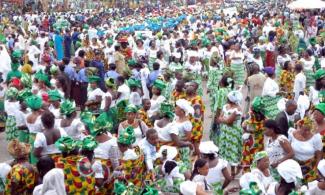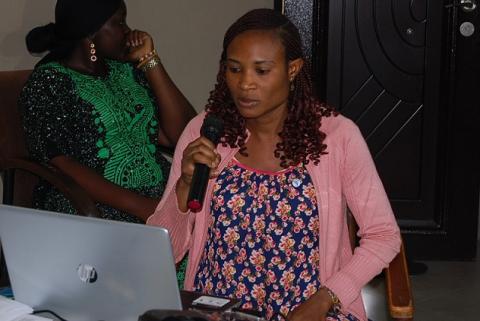
Noting that despite the 2006 National Gender Policy (NGP) recommendation of 35 per cent affirmative action for more inclusive representation of women, both in elective and appointive positions, women are still sidelined, WANEP recommended that a quota system should be introduced and adhered to at all levels of government to ensure inclusiveness.

West Africa Network for Peacebuilding has urged the Nigerian government to introduce and ensure the enforcement of quota system in the country’s politics to encourage more women to participate.
WANEP made the call during the presentation of the outcome of an online survey, at a media round-table in Lagos, with the theme: ‘The Role of the Media in Combating Gender Related Hate Speech Online through Objective and Conflict Sensitive Reporting’.
Presenting the findings of the survey, Patience Obaulo, Head of Programmes, WANEP, noted that women’s participation in politics is grossly hindered by gender-based hate speech in the media.
According to her, this has resulted in shrinking political space for inclusive participation of women in political and governance structure.
Obaulo revealed that the survey showed that political violence and education are part of the factors discouraging women from aspiring from political positions.
Her words: “100 per cent of the respondents believe that violence poses a threat to women participation in the electoral process.
“67.7 per cent of the respondents believe that the level of education of women play a significant role in how much women are empowered in the Nigerian political process. This number is significant because it shows the key role education plays in women’s participation in political leadership.”
The survey also showed that finance is another factor that strongly stands in the way of women vying for political positions as 67.7 per cent of respondents believe women are often relegated to the background.
“Interestingly, 96.8 per cent of the respondents think that lack of finance is a huge factor based on their responses,” she stated.

Obaulo maintained that from the outcome of the survey, Nigeria does not encourage women’s participation in politics, stating that “It is clear that the issue of women participation in politics and assumption of the leadership role in the Nigerian political environment is one that is pertinent.
“This implies therefore that the current political environment in Nigeria does not quite encourage women’s participation in political leadership.”
WANEP noted that despite the 2006 National Gender Policy (NGP) recommendation of 35 per cent affirmative action for more inclusive representation of women, both in elective and appointive positions, women are still sidelined.
It was recommended that a quota system should be introduced and adhered to at all levels of government to ensure inclusiveness.
Also stressing the need to ensure that political activities are devoid of violence, Obaulo said: “The political environment should be free of violence, political thugs and harassment. This will ensure women’s participation in politics, especially if it is effective and sustainable.”
The survey was carried out by the International Press Centre, West Africa Network for Peacebuilding and Humanity Family Foundation for Peace and Development with support from Peace Tech Exchange Nigeria.